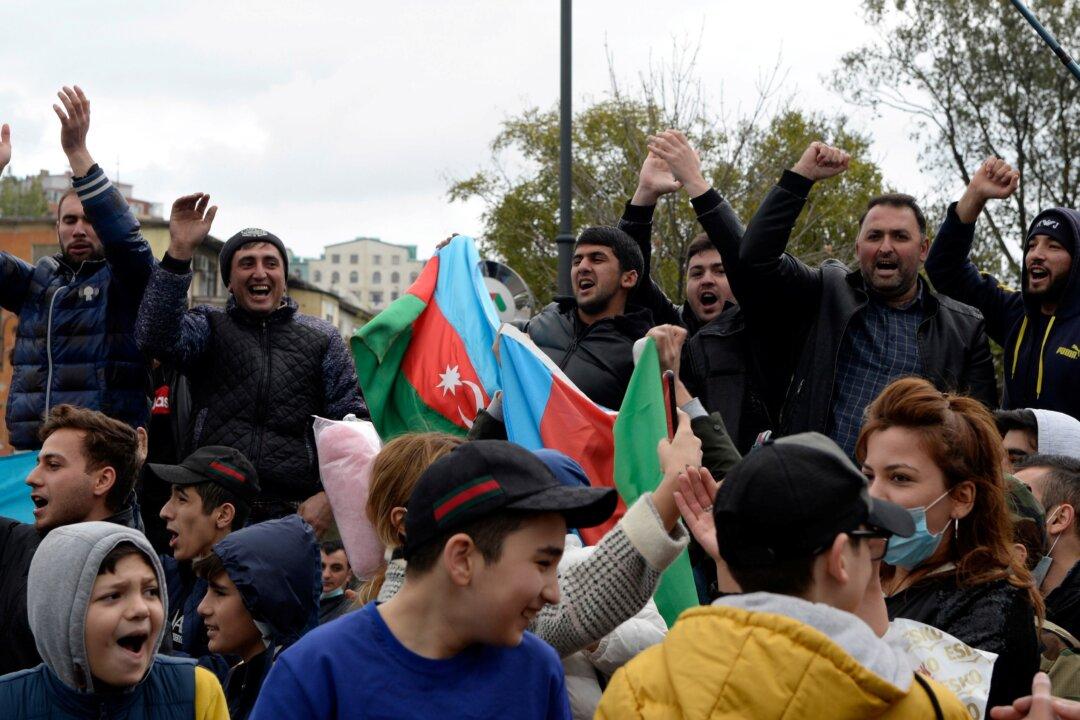YEREVAN/BAKU—Nagorno-Karabakh’s ethnic Armenian leadership said on Monday it had lost control of the mountain enclave’s second-largest city and that Azeri forces were closing in on Stepanakert, its seat of power.
After six weeks of heavy fighting, Azerbaijan said on Sunday it had captured Shusha, which is known by Armenians as Shushi and sits on a mountain top overlooking Stepanakert, Nagorno-Karabakh’s biggest city.





